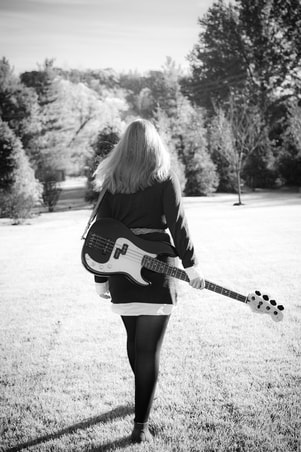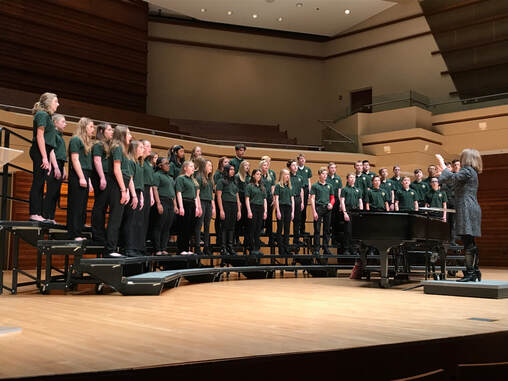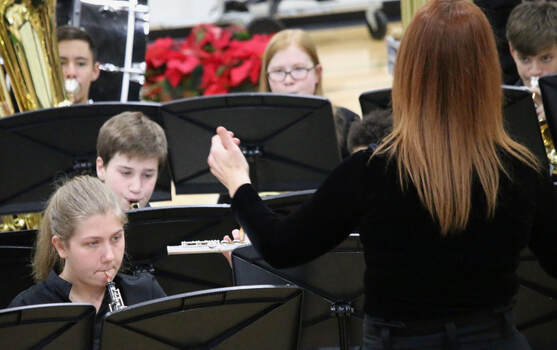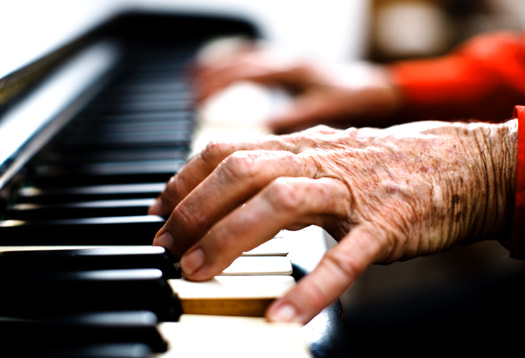Pretty simple, right?
Wrong.
“Listen to us, we performed at Midwest Clinic this year so we must be amazing!”
“My students always get high ratings at festivals, so I know we’re on the right track!”
“Half our school is in music ensembles, which means we’re doing well.”
“My students know all their scales and how to sight-read, so I’m doing my job.”
Let’s not forget the magical instrumental rehearsal formulas that will yield the most amazing performances ever (...yes, I jest). This mind-blowing formula is lumped together in two categories for ease:
80% = Technique (Long tones, lip slurs, scales, chordal tuning, chorales, method book reading, etc,.)
20% = Repertoire
Sound familiar? Of course it does.
Then BAM! COVID. A pandemic swept the carpet from underneath our pretty feet and took away the essential oxygen fueling our humanity - live performances.
Furthermore, for all that soporific, monotonous effort, we wished and hoped with all our might students would remember what to do, how to practice, continue their routines, and make progress. “Golly, I hope little Johnny remembers to use good breathing, sit up, and play with proper articulation like I taught him at home!”
Well, as my father says, that logic is more messed up than a soup sandwich.
Do you think students spent their time actually practicing that 80% deemed so important?
Absolutely not.
They wanted the 20%. They craved the repertoire. They wanted to play MUSIC that made them feel better. Music that made them feel a little less lost. Less lonely. Less vulnerable. Less hopeless. SomeTHING that would help release the endorphins they so desperately needed during the lockdown.

Along the same repertoire reasoning, let’s talk voice and choice in the ensemble. Why do directors insist on selecting pieces concert after concert? Have we not all learned the critical lesson of encouraging ownership after years of performing ourselves? “Oh man, I hated singing that piece in high school. I can’t believe he made us perform that!”
We can all relate.
Access to meaningful repertoire is as critical as understanding one’s purpose in life. Why bother playing an instrument or singing in choir if the music is not enjoyable? We can do more damage than good by not allowing our students the opportunity to invest in music selection. School ensembles suffer massive attrition yearly when relationships do not come first (mutual respect) and students do not feel valued.
Nothing says, “I value you” more than asking one’s opinion! At the very least, provide options. That’s simple enough.
To tie this is a neat bow, if we want students to walk away from our ensembles as lifelong learners of music, we must do a better job dangling a carrot of respect. By providing students with ownership in planning, we are amplifying their voices and cementing an appreciation not just for music, but their experiences with us.
Finally, memories harnessed by performers with repertoire input can yield higher meaningful, emotionally stimulating responses. The limbic system (where we process emotions) is how musicians become hard-wired to store music. If we want students to recall their musical experiences until the end of natural life, it is imperative we create connective pathways for memories to last.
So I ask, are you enabling your students to desire a lifelong musical journey?




 RSS Feed
RSS Feed